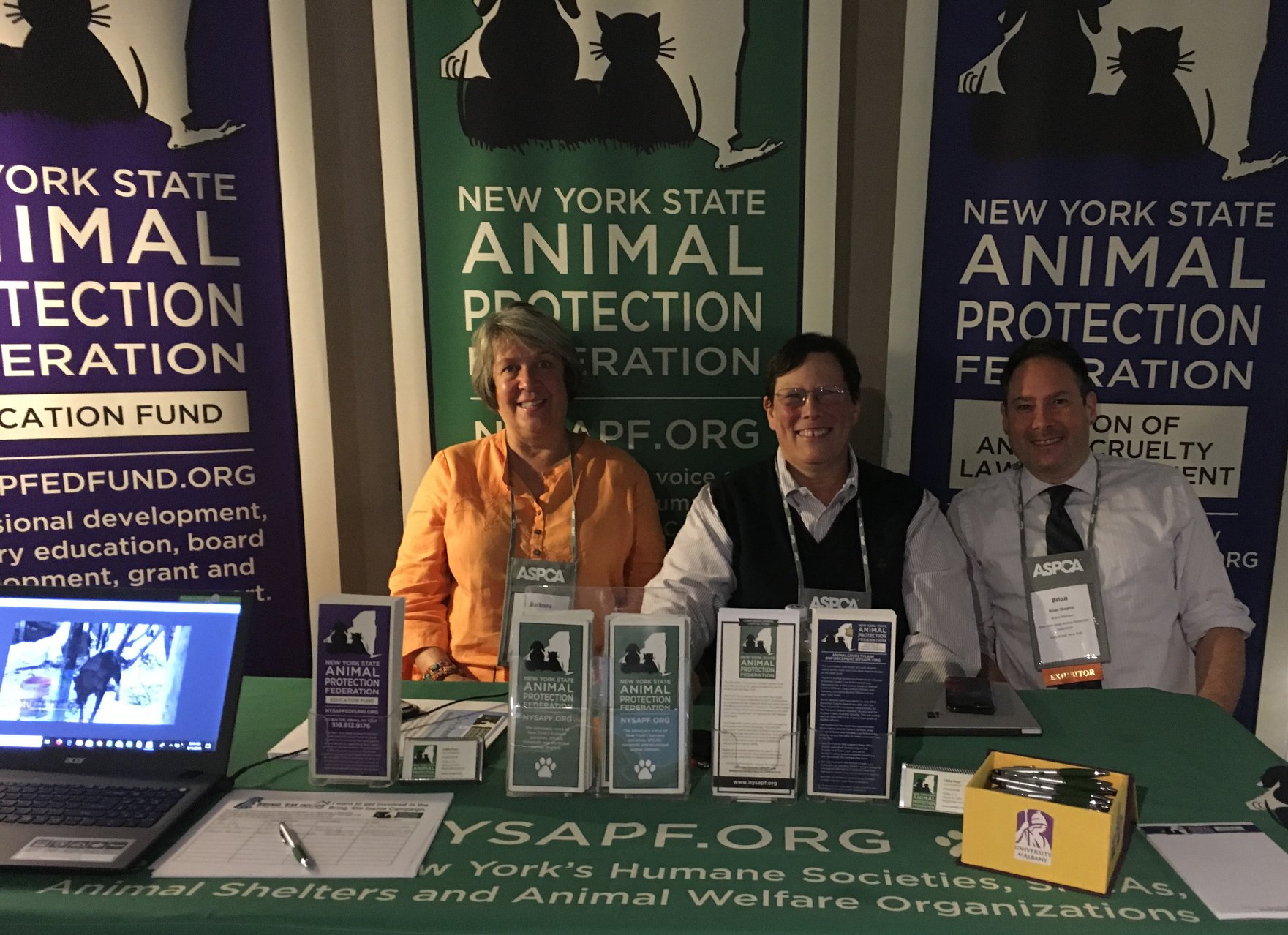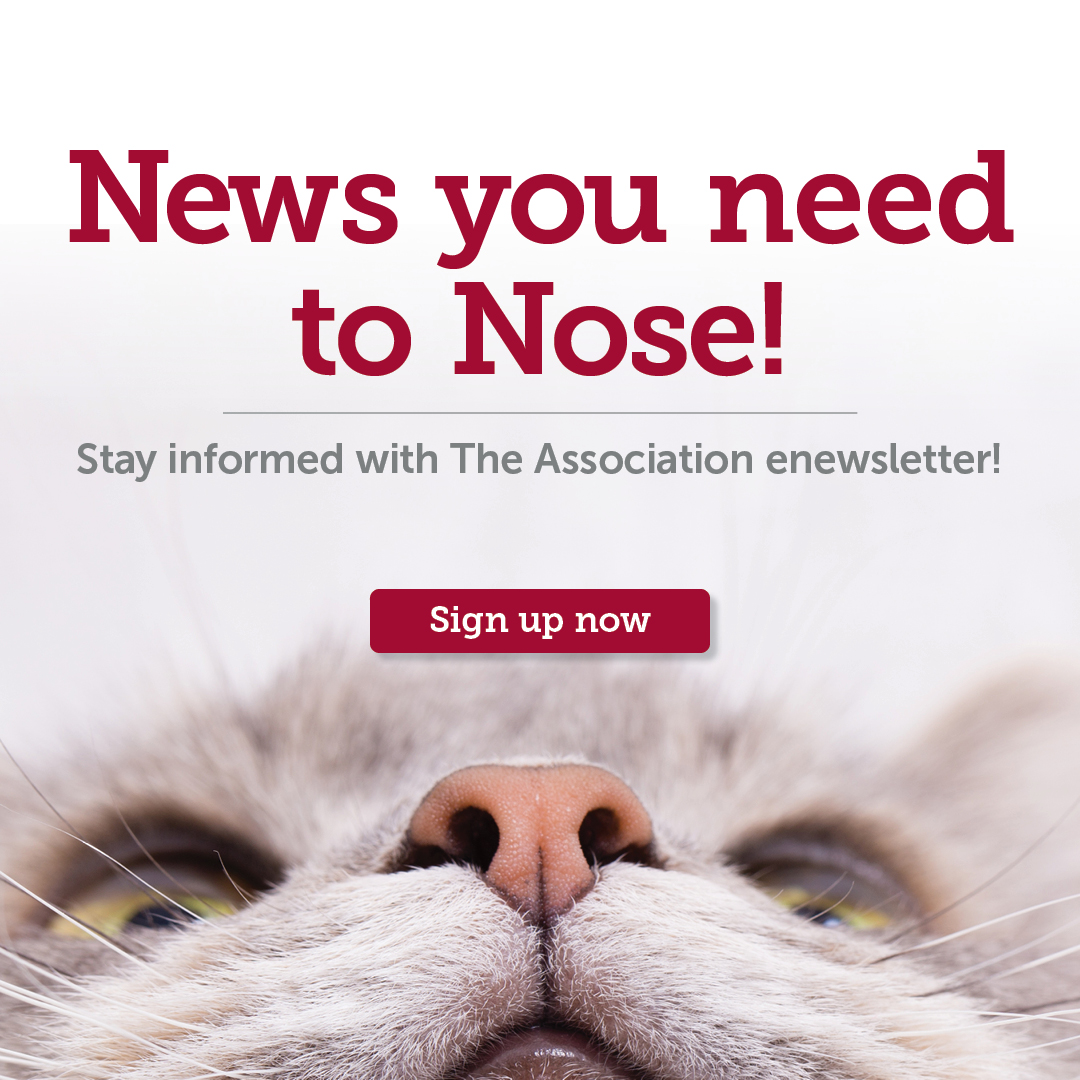News, ideas & inspiration from industry leaders

3 Qs with a Lobbyist (and how you can become an animal advocate, too)
With citizen lobbying an emerging form of civic participation, and more and more Americans interested in advocating for positive change in their communities, there’s no better time for our 3-part Effective Legislative Advocacy webinar series. We checked in with lobbyist and political consultant Libby Post, Executive Director of the New York State Animal Protection Federation (and center in above photo), on what you’ll learn in the series—and how to build relationships with elected officials.
The Association: Why should animal welfare professionals care about legislation and advocacy?
Libby Post: Policy—at the local, state and national levels—is what drives how we do what we do in animal shelters and animal welfare. Where does your funding come from? Do you want to expand your municipal contracts? Are there outside folks looking to micromanage shelter operations without any real knowledge of how shelters operate?
There are hundreds, if not thousands, of these questions that those of us in the animal welfare and sheltering community need to keep in focus as we move forward. Advocacy is standing up for your shelter, standing up for animals. It’s about leading the community on an issue that can bring about enhanced donor activity. It’s about creating a presence in government where you’re seen as the expert on these issues, and must be consulted before anything is brought to the floor for a vote. Advocacy is about building relationships with elected officials and policymakers. It’s fundamental to making sure your shelter is protected.
The Association: What can municipal agencies do to further causes in their communities?
Libby Post: Municipal shelters can and should build relationships with their local elected officials. The folks who run these shelters may not be able to “advocate,” but they can certainly educate the folks who ultimately make decisions about their shelters—like decisions about funding.
You can build these relationships in various ways:
- Host an open house (once it’s safe)
- Hold Zoom town halls on animal welfare issues
- Invite local electeds to host adoption events, cut ribbons, help do a “community feed”
Municipal shelters can also work with advocacy-minded volunteers to form “Friends Of” groups (similar to what public libraries have) to help raise funds, but to also advocate on behalf of the shelter during budget negotiations or when a local bill would impact how the shelter operates.
The Association: We’re so excited for your upcoming webinars with us! What are the key takeaways that attendees will gain from the series, and what will they be empowered to do? How will animals be helped?
Libby Post: People will have the skills to speak out on behalf of animals in a way elected officials and policy makers will understand and pay attention to.
What’s important is being able to distill complicated issues into simple messages. Attendees will learn how to craft a compelling message, how local and state government work, how a bill becomes a law, how to build relationships with elected officials and policymakers that will pay off in the future, and how to make your case to achieve positive outcomes. Participants will also learn the importance of coalition building on specific issues—even if you don’t agree on all issues.
Don’t Miss Libby’s Effective Legislative Advocacy Webinar Series!
1/27/21: How the Legislative Process Works
In this webinar, you’ll get a basic overview of how a bill becomes a law at state and federal levels, and the roles you can play in developing policy. Register here.
2/3/21: Lobbying 101
We’ll delve into what nonprofits can and cannot do in terms of lobbying and advocacy. Plus, a short role-play activity! Register here.
2/10/21: Grassroots Organizing & Advocacy
Tools and messaging needed to organize local support for a policy initiative and how to put together a campaign. Register here.


